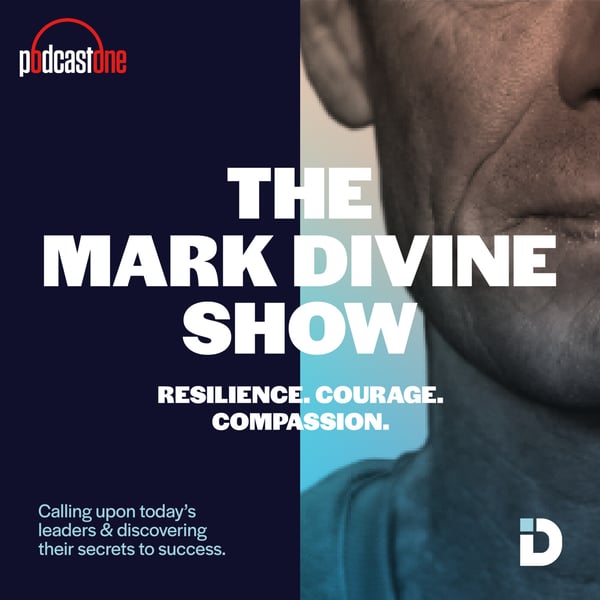The Psychology of Resilient Leadership with Neuropsychologist Dr. Julia DiGangi
The Mark Divine Show
Mark Divine
4.8 • 1.7K Ratings
🗓️ 4 June 2024
⏱️ 65 minutes
🧾️ Download transcript
Summary
There is a surprising factor that limits your leadership potential – Unresolved trauma. Trauma is a disruption of the patterns our brains trust to navigate life.
Dr.Julia DiGangi is a neuropsychologist who completed her clinical training at a consortium of Harvard Medical School, Boston University School of Medicine, and the US Department of Veterans Affairs. She has nearly two decades of experience studying the connection between our brains and our behavior. Dr. DiGangi has worked with leaders at the White House Press Office, global companies, international NGOs, and US Special Forces. Her understanding of stress, trauma, and resilience is also informed by her work in international development and humanitarian aid, where she served some of the world's most vulnerable communities. The founder of NeuroHealth Partners, a neuropsychology-based consultancy, DiGangi shows people—at work and at home—how to harness the power of the brain to lead more satisfying and emotionally intelligent lives.
Key Takeaways
-
The Brain’s Role: The brain is fundamentally a pattern detection machine, moving us through life largely unconsciously based on past memories and experiences.
-
Trauma Shatters Patterns: Trauma is defined as the violent shattering of expected patterns, causing confusion because it disrupts the brain's meaning-making process. The pain of trauma lies not so much in what happened, but in our response to it - the belief that we are never safe again or can never trust again.
-
Suppressing Emotions Clogs the Nervous System: When we avoid feeling painful emotions, we "shove them down" repeatedly, leading to a lifetime of a clogged emotional pipe or nervous system.
-
Leaders are Limited by Unresolved Trauma: A leader's primary limitation is their inability to see and deal with their past traumas. Childhood survival strategies that were once adaptive can constrain adult leadership.
-
Trust is the Antidote to Uncertainty: The brain is allergic to uncertainty, but seeking external certainty only breeds more anxiety. The opposite of uncertainty is not certainty but surrender and trust.
Sponsors and Promotions:
DUER:
To experience the ultimate blend of style, comfort, and performance in your denim, head to shopduer.com/DIVINE and get 20% off sitewide on DUER's revolutionary stretch jeans and apparel.
Momentus:
Designed by the world's best experts, used by the world's best teams and athletes, and made for all of us.
https://www.livemomentous.com, and use code DIVINE for 20% off your first order.
Defender:
Ready for adventure? With a family of vehicles to choose from, you'll have the space, technology, and performance to go further than ever before. Explore the Defender lineup at https://www.LandRoverUSA.com/Defender
Links for Dr. Julia DiGangi
Transcript
Click on a timestamp to play from that location
| 0:00.0 | We started out talking about leadership. Leaders are limited only by their inability to see and deal with their past traumas, I believe. |
| 0:07.0 | So that becomes their primary limitation. |
| 0:09.0 | A lot of times, too, our best survival strategies in childhood which were wildly adaptive and |
| 0:14.7 | intelligent are the very things that are harming us and constraining our |
| 0:19.0 | leadership as adults. How do we take this pain inside of us and truly convert it into power? |
| 0:26.1 | When you understand your triggers, you are unstoppable. And the other thing I say to people too is like if it's a trigger it's never a surprise. |
| 0:36.0 | This is another big twist I think for your listeners. |
| 0:40.0 | Dr. DeGangee so stoked to have you here today. |
| 0:43.5 | I appreciate you being on the show. |
| 0:44.8 | Thanks for having me, Mark. |
| 0:45.8 | I'm excited to be here as well. |
| 0:47.3 | Yeah, it's my pleasure. |
| 0:49.0 | I'm really excited to learn about neuropsychology. Like, to me, I would assume that anything to do with psychology had to do with neurology |
| 0:58.1 | but I assume by neuropsychology you're looking at the physiological |
| 1:04.2 | functioning and what does that mean neuropsychology? |
| 1:07.3 | Yeah so I am a neuropsychologist which means I'm a clinical psychologist |
| 1:10.9 | with specialized expertise in the brain and you know psychologists are |
| 1:14.9 | obviously incredibly interested in emotion and behavior I have a lot of |
| 1:19.1 | neuroscience training I've conducted a lot of neuroscience research and my expertise really sits in the |
| 1:24.8 | intersection of the brain, emotion, and leadership. Okay. And you really can't |
| 1:31.1 | talk about leadership. I think a perfect synonym for leadership is actually relationship. |
| 1:35.4 | Right. So I really study the brain's effect on our emotion and our relationships. |
... |
Please login to see the full transcript.
Disclaimer: The podcast and artwork embedded on this page are from Mark Divine, and are the property of its owner and not affiliated with or endorsed by Tapesearch.
Generated transcripts are the property of Mark Divine and are distributed freely under the Fair Use doctrine. Transcripts generated by Tapesearch are not guaranteed to be accurate.
Copyright © Tapesearch 2025.

